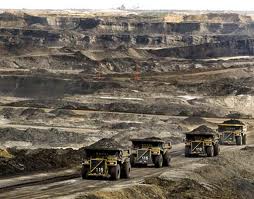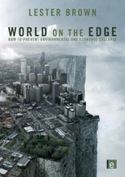
“The cost of cutting back emissions is more than we estimated, but that is because the consequences of climate change are already here.” These words of Nicholas Stern’s are included in the announcement that he has just been awarded the 400,000-euro BBVA Foundation Frontiers of Knowledge Award in the climate change category. He elaborates:
“Emissions are rising rapidly, and the capacity of the ocean to absorb carbon is less than we thought. Also, other effects, particularly the melting of the polar ice, seem to be happening much faster. We need to take more drastic steps, so the costs will inevitably be higher”.
However this doesn’t alter the message of the 2006 Stern Review on the Economics of Climate Change for which Stern received the award, namely that failure to tackle climate change will exact a far higher economic cost than action to reduce greenhouse gas emissions. This idea, the award announcement says, has “fundamentally changed the international climate change debate and stimulated action”.
Acting now, says Stern, not only saves far greater costs in the future but also represents an important economic opportunity:
“Climate change economics is the next industrial revolution. The countries who invest now in this new growth market will gain the advantage of a first mover. Those who don’t risk being left behind”.
He notes that China and some European countries, Spain among them, have woken up to the benefits of fostering a low-emissions economy. He urges Spain to stay the course. But the US and some other rich economies are advancing more slowly. There’s certainly little sign here in New Zealand of any great enthusiasm from the government to join the next industrial revolution. (My observation, not Stern’s). The Minister for Economic Development is still firmly stuck in the last one.
Stern sees climate change is a major economic opportunity which calls for investment. He’s also adamant that taking steps to mitigate climate change can help us to pull clear of the current economic crisis, implying that it is foolish on the part of some governments to use the downturn as an excuse for inaction.
The BVVA announcement provides a succinct summary of the economic understanding that Stern brings to the situation we have landed ourselves in:
“Stern warns that climate change may be the biggest market failure the world has yet seen, because the damages caused by greenhouses gases are not reflected in the prices of the goods and services whose production causes the emissions problem. The response, in his view, is to shift onto a low-carbon growth path based on three kinds of policies: a carbon pricing system based on taxation and development of an efficient market in emission rights, the right technology policy, and the removal of barriers to changes in social behaviour so energy saving habits are encouraged and rewarded.”
Nicholas Stern commented:
“I feel very privileged to receive a prize that is dedicated specifically to climate change research. It is certainly a very clear statement of the importance that the BBVA Foundation attaches to an area so vital for the future existence of human beings on this planet.”
Stern has no doubt about the realities of climate change. It is a mark of his writing that he takes the science with full seriousness and consequently orients his thinking to how it can be most adequately addressed. There’s no trifling with the issue. As the opening quotation of this post indicates he remains up with the play. His thinking is also marked by his sense of humanity. It was a striking feature of his 2009 book The Global Deal: Climate Change and the Creation of a New Era of Progress and Prosperity (US edition – UK title Blueprint for a Safer Planet) that he insisted throughout that combating climate change is inextricably linked with poverty reduction as the two greatest challenges of the century and that we shall succeed or fail on them together. I reviewed his book on Hot Topic. He’s a worthy recipient of a significant award.

 Ethical oil. That’s what Canada is producing from its massive tar sands operation, according to the newly appointed Environment Minister Peter Kent. I admit to having missed that dimension in what I have read of the oil extraction from tar sands. I understood that when the CO2 emissions from its production is added to the CO2 from its combustion it emits between 10 and 45 percent more than conventional crude. I also understood that the environmental effects of the mining and extraction process are appalling, that restoration undertakings are more promised than real and that First Nation communities are gravely affected. Most telling of all I understood that according to James Hansen if the world wants to have a chance of avoiding dangerous climate change it must not only rapidly phase out coal emissions but also leave unconventional fossil fuels such as oil from tar sands in the ground.
Ethical oil. That’s what Canada is producing from its massive tar sands operation, according to the newly appointed Environment Minister Peter Kent. I admit to having missed that dimension in what I have read of the oil extraction from tar sands. I understood that when the CO2 emissions from its production is added to the CO2 from its combustion it emits between 10 and 45 percent more than conventional crude. I also understood that the environmental effects of the mining and extraction process are appalling, that restoration undertakings are more promised than real and that First Nation communities are gravely affected. Most telling of all I understood that according to James Hansen if the world wants to have a chance of avoiding dangerous climate change it must not only rapidly phase out coal emissions but also leave unconventional fossil fuels such as oil from tar sands in the ground.

